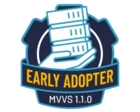We have a situation where we want to have multiple Unidata accounts on a single Windows server but the accounts may related to customer sites in different time zones.
The front end will be a browser based web application.
If we use DATE() and TIME() that will pick up the date and time from the server which may not match the date/time relating to the location of the customer's site.
We have thought about
1. Calling an API to get the site "actual" time but that must rely on both an internet connection and the API always being available.
2. Maintaining a "time offset" setting but that's difficult with daylight saving as that can kick in on different dates each year and sometimes isn't required at all.
3. User the date/time from the users local PC but what if the user is travelling or simply has their date/time set incorrectly.
Has anyone come up with a good solution to this?
Many thanks
Barry Green
CBS Software
M: 0414 380192 T:08 82601256
www.cbssoftware.com.au
www.cbssoftware.com.au/terminal-operating-system
www.cbssoftware.com.au/depot-management-software
[CBS_Logo]






